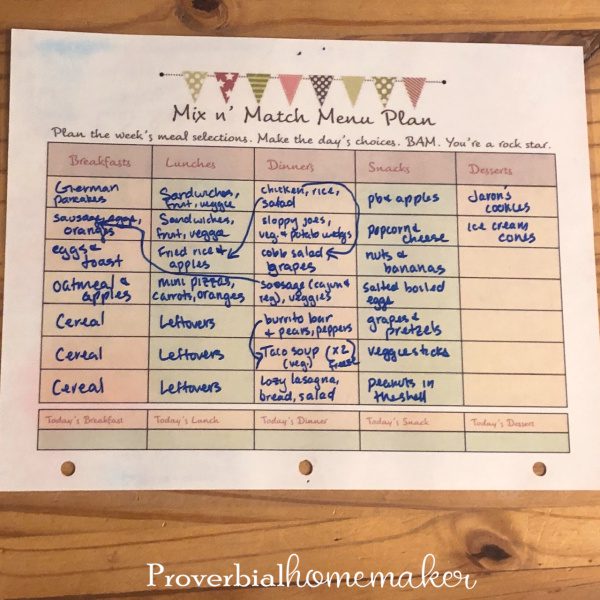Meal planning can feel overwhelming, but with the right strategies and techniques, it can save time and improve eating habits. Establishing a routine, finding inspiration from cookbooks or blogs, taking inventory, creating a grocery list, planning ahead, being flexible, shopping smart, utilizing leftovers, and involving the family are the ultimate tips for effective meal planning. The routine of planning, finding inspiration for variety, taking inventory, and creating a grocery list save time and stress. Planning ahead and being flexible enable healthy decisions, utilizing leftovers repurpose food to avoid waste, and involving the family helps take everyone’s preferences into account.
Ultimate Tips to Meal Planning: How to Effectively Plan a Weekly Menu
Meal planning is an essential part of maintaining a healthy lifestyle, but it can seem overwhelming and time-consuming. However, with the right strategies and techniques, it can actually save time and improve your overall eating habits. Here are the ultimate tips for meal planning and how to use them effectively:
1. Establish a Routine
Establishing a routine is the first step to success in meal planning. Decide on a day of the week that works best for you to plan meals and create a grocery list. This routine will make the process more manageable and save you time and stress in the long run.
2. Find Inspiration
To avoid getting bored with the same meals, try to find inspiration for new recipes. This could be from cookbooks, food blogs, social media or even talking to friends and family. Adding variety to your meals will keep you excited about meal planning and help you discover new favorite dishes.
3. Take Inventory
Before creating your grocery list, assess what you already have in your pantry, fridge and freezer. This helps to avoid overbuying and wasting food. Incorporating what you already have into your meal plan also reduces your overall grocery bill.
4. Create a Grocery List
Creating a grocery list based on your meal plan will ensure you have all the ingredients you need for your planned meals. This saves time and stress during the upcoming week, knowing you have everything you need to cook a healthy meal.
5. Plan Ahead
Planning ahead also includes meal prepping for the week. Chop vegetables, cook grains and proteins in advance to save time and have a grab-and-go meal. Meal prepping also ensures healthy decisions throughout the week when you may not have the time to prepare a meal from scratch.
6. Be Flexible
It is important to be flexible in your meal planning. Life happens, and plans can change. It is okay to move a meal to another day or swap ingredients. Flexibility in meal planning ensures that you do not waste food and that you can adjust every week according to your schedule.
7. Shop Smart
When shopping at the grocery store, shop smart. Stick to your grocery list to avoid impulse buying and save money. Shop in bulk for non-perishable items and take advantage of sales and coupons. Also, remember when shopping for fruits and vegetables, to choose seasonal produce to save money and enjoy the freshest ingredients.
8. Utilize Leftovers
Leftovers are an important part of meal planning. Instead of throwing away food or feeling bored with the same meal, repurpose it into something new. Leftovers can be utilized for breakfast, lunch, or dinner. For example, leftover roasted vegetables can be used in a breakfast omelet, while cooked grains can be added to a salad for lunch.
9. Involve the Family
Meal planning can be a family affair. Involving the family in the process ensures that everyone’s dietary needs and preferences are taken into account. Children can also learn valuable cooking and budgeting skills, and everyone can share responsibility in the meal planning process.
Effectively using these tips will make meal planning a breeze. Establishing a routine, finding inspiration, taking inventory, creating a grocery list, planning ahead, being flexible, shopping smart, utilizing leftovers, and involving the family will save time, reduce stress, and help maintain a healthy lifestyle. Happy planning!
